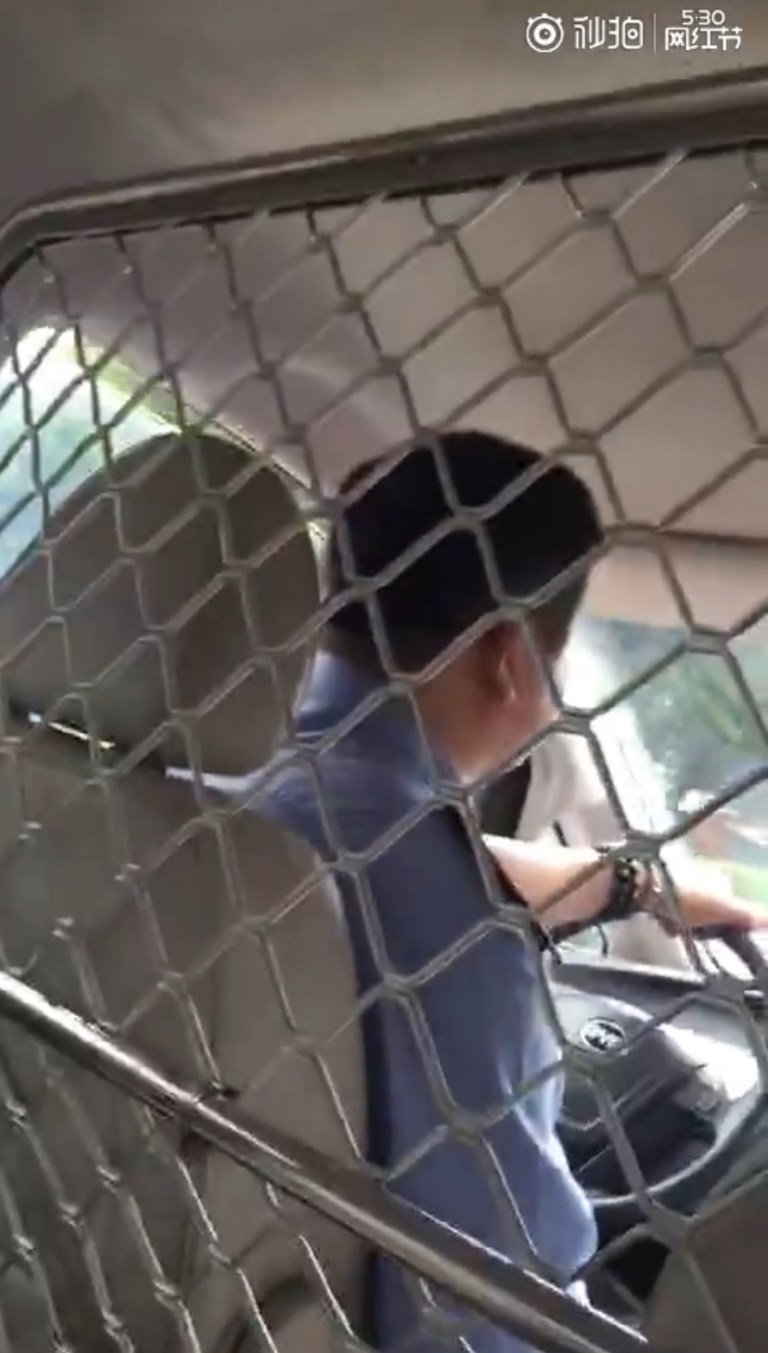Video of a police officer verbally abusing two women on the drive to the police station has enraged netizens and sparked an investigation.
The women were out for a walk in Shenzhen on May 21 when the officer stopped them and asked for their identification cards, which neither had. He then put them in his police car and took them to the station, arguing with them and yelling at them along the way. “Yeah, that’s right, I saw you looked pretty, right, and now I’m locking you up,” he screamed. “If you don’t understand the law, I’ll teach you a lesson, I’ll let you see it firsthand. I’m going to put you with the AIDS patients, the petty thieves, and the robbers, and let you just enjoy yourselves.”
One of the women recorded part of the ride, ending with a pan of scratches on her companion’s arm. Although the video is several weeks old, it just gained traction today when it was posted to Weibo by user “Fart People Who Are Afraid to Speak” (Buganshuohuadepimin @不敢说话的屁民). The post has over 6,400 comments and has been reposted nearly 36,000 times, but the video has been deleted from Weibo. The video is still available on YouTube.
Netizens are appalled by the officer’s abuse of power, comparing him to a gangster in both speech and demeanor. One said the police car is “where the law comes to die.”
The Bao’an branch of the Shenzhen Public Security Bureau responded to the outrage online with a Weibo post stating that a formal investigation of the officer’s conduct has been launched by both the branch and municipal levels of the PSB.
The officer tells the women he’s going to “teach them a lesson” about the law, but does not respond when one asks exactly which law they broke. Article 14 of China’s Resident Identity Card Law enumerates the circumstances under which a citizen must produce their identification:
Any citizen shall, under any of the following circumstances, produce his resident identity card to prove his identity:
(1) changing of the permanent residence registration;
(2) registering for conscription;
(3) registering for marriage or adoption ;
(4) applying for going through the formalities of leaving the country; or
(5) other circumstances where, according to the provisions of laws and administrative regulations, the resident identity card is required to prove his identity. [Source]
The Shenzhen officer seems to have employed a loose interpretation of article 14.5.
In other recent incidents, public security officials have reportedly resorted to outright violence. One online comment joked bleakly that the women should “be grateful Uncle Officer didn’t kill you.” VOA’s Yu Mengtong notes that this “draws a connection to the Lei Yang case,” in which a man died in police custody last month after he was picked up in an alleged sting on a massage parlor doubling as a brothel. This week, Liu Ermin, the wife of a rights lawyer still held nearly a year after last July’s Black Friday crackdown, reported that she was beaten while in custody for protesting her husband’s detention. Abuse in custody is believed to be a major factor in the country’s high rate of convictions and a number of prominent miscarriages of justice. Proposals to combat this were raised at this year’s Two Sessions, but failed to gain momentum.
On Friday, lawyer Wu Liangshu refused to accept an official apology and a new pair of pants to replace those shredded in a beating by court police. In another, accidental case this week, a Guangdong man was killed by a policeman’s warning shot, agitating concerns over the recent arming of often undertrained police.








